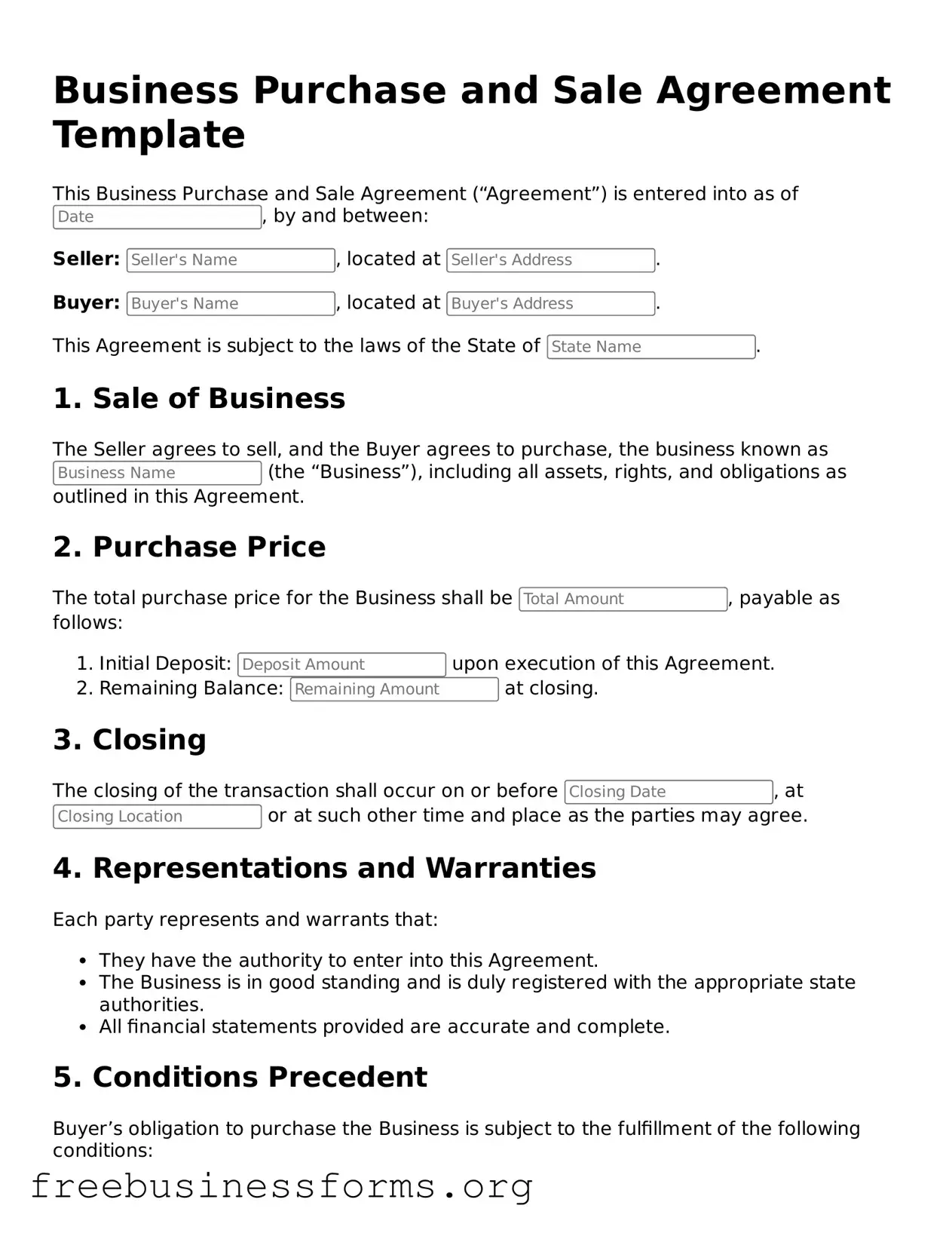Official Business Purchase and Sale Agreement Form
A Business Purchase and Sale Agreement is a legal document that outlines the terms and conditions under which a business is bought or sold. This agreement serves as a critical framework for both buyers and sellers, detailing important aspects such as purchase price, payment terms, and the responsibilities of each party. Understanding this form is essential for anyone involved in a business transaction, as it helps ensure clarity and protect the interests of all parties involved.
Open Form Here

Official Business Purchase and Sale Agreement Form
Open Form Here

Open Form Here
or
↓ PDF File
Quickly complete this form online
Complete your Business Purchase and Sale Agreement online quickly — edit, save, download.